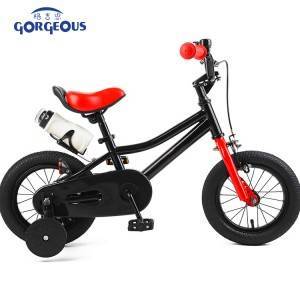10 月 . 17, 2024 14:38 Back to list
Top Manufacturers of Baby Walkers and Reliable Suppliers Worldwide
Baby Walker Factory Suppliers A Comprehensive Overview
In recent years, the global demand for baby walkers has significantly increased, driven by the rise in the number of young families and heightened awareness of child development. Baby walkers, designed to assist infants in early mobility, not only facilitate movement but also provide an opportunity for toddlers to explore their surroundings independently. However, as this market continues to expand, the role of baby walker factory suppliers becomes increasingly critical in delivering quality products to meet consumer needs.
Understanding Baby Walkers
Before delving into the suppliers, it's essential to understand what baby walkers are and their potential benefits. A baby walker is a wheeled apparatus that enables infants who cannot yet walk to move around freely by pushing themselves along with their feet. They come in various designs, colors, and functionalities, incorporating toys and interactive elements to keep children engaged. However, safety is paramount; hence, reputable manufacturers and suppliers prioritize the incorporation of safety features such as brakes and sturdy frames.
The Importance of Quality Suppliers
Choosing the right baby walker factory supplier is crucial for retailers and brands aiming to bring safe and high-quality products to market. Quality suppliers not only ensure compliance with international safety standards but also deliver products that meet consumer expectations in terms of design and functionality. A reputable supplier invests in robust testing protocols and materials to guarantee that their products are safe for children and durable over time.
Key Factors to Consider When Selecting a Supplier
1. Reputation and Experience Suppliers with a solid reputation in the industry often reflect dedication to quality and customer service. Experienced suppliers are more likely to understand market trends and regulatory requirements.
2. Certifications and Compliance Look for suppliers who comply with safety standards, such as ASTM and CPSIA in the United States or EN 71 in Europe. These certifications indicate that the products have undergone rigorous testing and are deemed safe for children.
baby walker factory suppliers

3. Product Range and Customization A versatile supplier offering a range of baby walkers allows retailers to cater to different customer preferences. Additionally, the ability to customize products can help brands stand out in a competitive market.
4. Pricing and Minimum Order Quantities (MOQs) Competitive pricing is essential for profitability. Suppliers should provide transparent pricing structures while considering batch sizes to suit various business needs.
5. Communication and Support Effective communication is crucial for building a lasting supplier relationship. Suppliers should be responsive and provide support throughout the order process, from initial inquiries to after-sales service.
Leading Regions and Suppliers
Countries like China, Vietnam, and India are prominent in the baby walker manufacturing landscape due to their advanced production capabilities and cost-effectiveness. Numerous factories in these regions specialize in the production of baby products, offering a plethora of options for international buyers.
In China, for instance, several established manufacturers not only provide a wide range of baby walkers but also emphasize eco-friendly practices, such as using non-toxic materials. Buyers should conduct thorough research and due diligence to identify reputable suppliers in these regions.
Conclusion
As the demand for baby walkers continues to rise, selecting the right factory supplier becomes paramount for businesses aiming to thrive in this competitive market. By focusing on quality, safety, and comprehensive support, suppliers can ensure that retailers meet consumer demands while fostering lasting relationships within the industry. Whether you are a new entrepreneur or an established player, aligning with the right baby walker factory suppliers will pave the way for success in the ever-evolving landscape of childcare products.
-
Children Tricycle Factory Custom Designs & Safety Certified
NewsMay.30,2025
-
Best Scooters for Teens Top-Rated, Safe & Durable Rides for 2023
NewsMay.30,2025
-
Affordable Mini & Baby Bicycle Prices Best Deals & Discounts
NewsMay.29,2025
-
20-Inch Kids Tricycle Adjustable Seat, Safe & Durable Design
NewsMay.29,2025
-
20 Inch Kids Bikes Lightweight, Adjustable & Durable Designs
NewsMay.29,2025
-
Magnesium disc Bicycle wholesale children bicycle wholesale children mountain balance bicycle
NewsMar.07,2025
